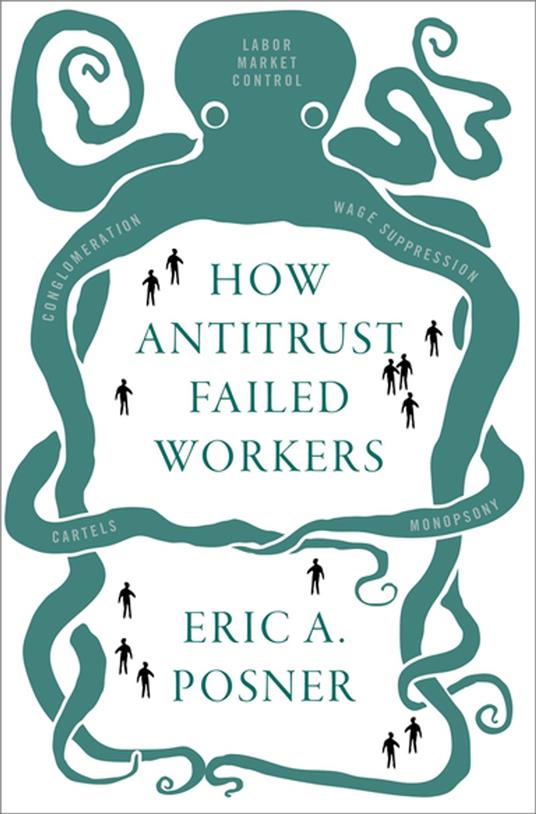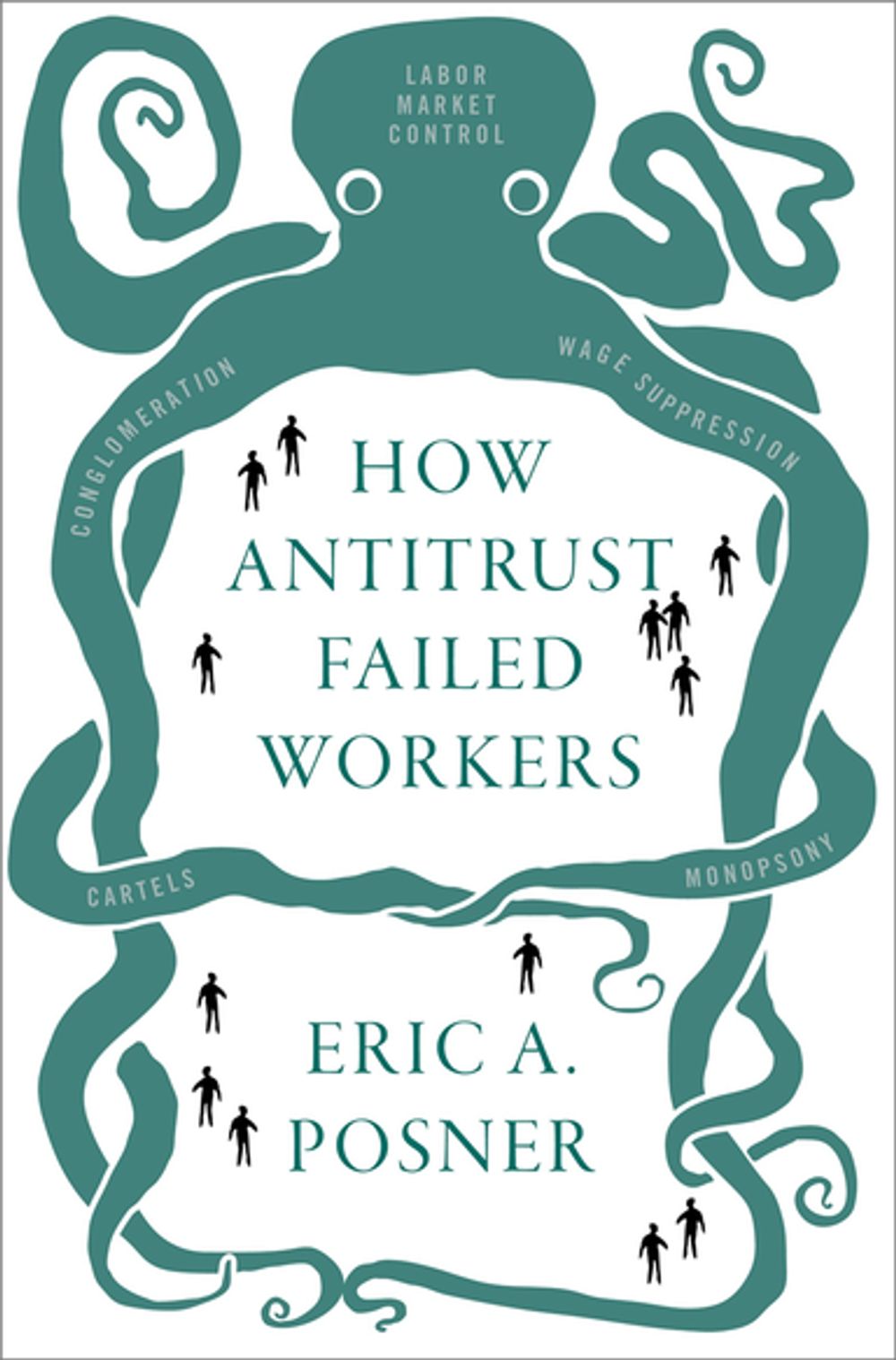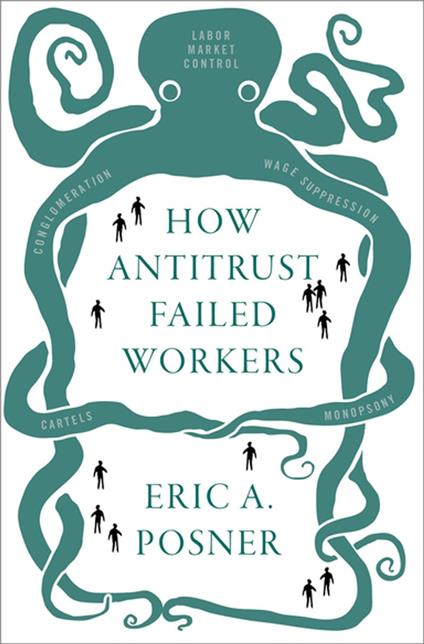How Antitrust Failed Workers
A trenchant account of an unacknowledged driver of inequality and wage stagnation in America: the failure of antitrust law to prevent the consolidation of employers, who use their market power to suppress wages. Since the 1970s, Americans have seen inequality skyrocket--and job opportunities stagnate. There are many theories of why this happened, including the decline of organized labor, changes in technology, and the introduction of tax policies that favored the rich. A missing piece of the puzzle is the consolidation of employers, which has resulted in limited competition in labor markets. This should have been addressed by antitrust law, but was not. In How Antitrust Law Failed Workers, Eric Posner documents the failure of antitrust law to address labor market concentration. Only through reforming antitrust law can we shield workers from employers' overwhelming market power. Antitrust law is well-known for its role in combatting mergers, price-fixing arrangements, and other anticompetitive actions in product markets. By opposing these practices, antitrust law enhances competition among firms and keeps prices low for goods and services. Less well-known, antitrust law also applies to anticompetitive conduct by employers in labor markets, which pushes wages below the competitive rate. Yet there have been few labor market cases or enforcement actions, and almost no scholarly commentary on the role of antitrust law in labor markets. This book fills the gap. It explains why antitrust law has failed to address labor market concentration, and how it can be reformed so that it does a better job. Essential reading for anyone interested in fighting economic inequality, How Antitrust Failed Workers also offers a sharp primer on the true nature of the American economy—one that is increasingly uncompetitive and tilted against workers.
-
Autore:
-
Anno edizione:2021
-
Editore:
-
Formato:
-
Lingua:Inglese
Formato:
Gli eBook venduti da Feltrinelli.it sono in formato ePub e possono essere protetti da Adobe DRM. In caso di download di un file protetto da DRM si otterrà un file in formato .acs, (Adobe Content Server Message), che dovrà essere aperto tramite Adobe Digital Editions e autorizzato tramite un account Adobe, prima di poter essere letto su pc o trasferito su dispositivi compatibili.
Cloud:
Gli eBook venduti da Feltrinelli.it sono sincronizzati automaticamente su tutti i client di lettura Kobo successivamente all’acquisto. Grazie al Cloud Kobo i progressi di lettura, le note, le evidenziazioni vengono salvati e sincronizzati automaticamente su tutti i dispositivi e le APP di lettura Kobo utilizzati per la lettura.
Clicca qui per sapere come scaricare gli ebook utilizzando un pc con sistema operativo Windows



